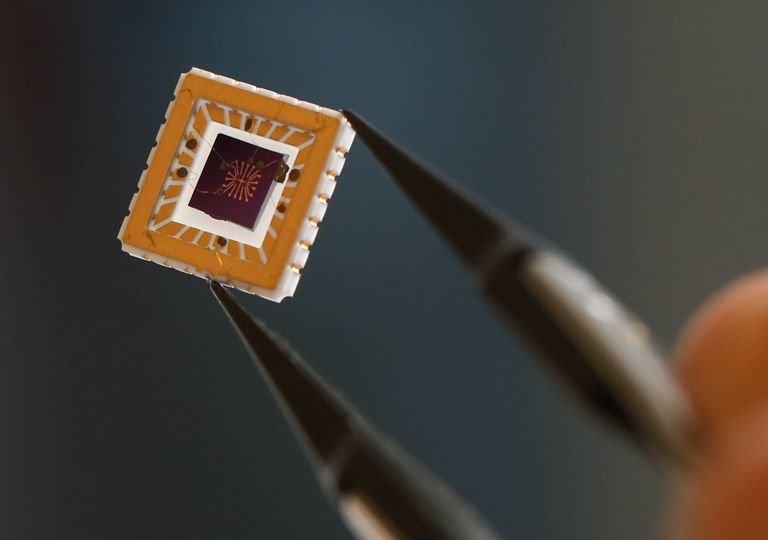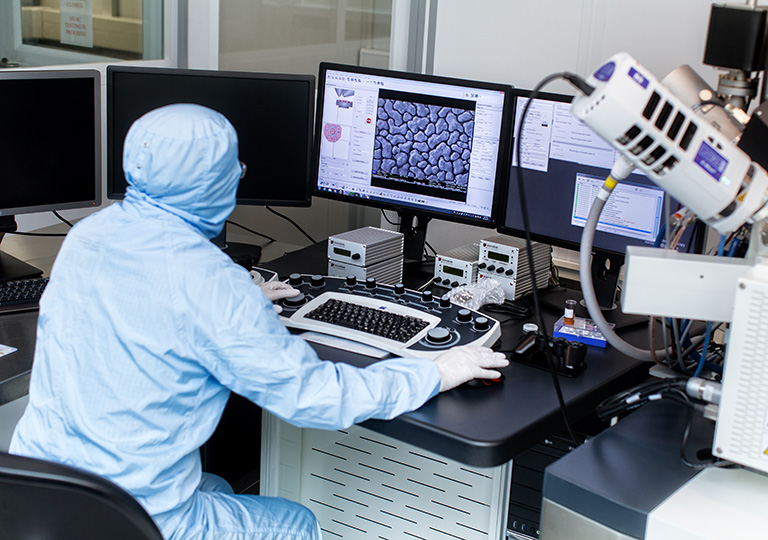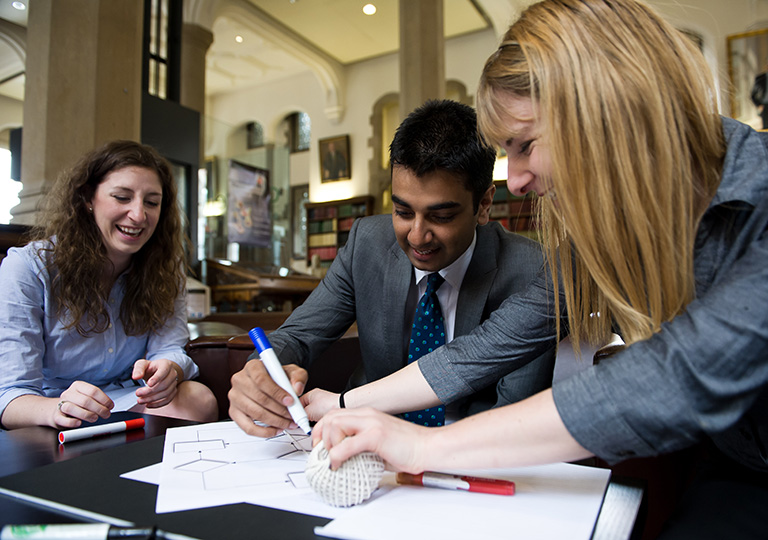It’s a story that could one day be as famous as Newton and the apple, or Fleming’s accidental discovery of penicillin. One Friday evening in 2004, in a physics lab at The University of Manchester, Professors Andre Geim and Kostya Novoselov were holding one of their ‘Friday night experiments’.
Find out about graphene and enterprise at @Official_UoM Share on X Uniting research and business, how enterprise is thriving at Manchester Share on X What do a levitating frog, a pencil and some sticky tape have in common? Share on XDuring these sessions, the two scientists would experiment with things that weren’t related to their day jobs, in a sense, ‘messing about’ with science. Geim had previously had some success with these types of quirky experiments. In 1997, he briefly made headlines after successfully levitating a frog in a magnetic field (without the aid of a wand).
This particular Friday night, however, the two scientists were experimenting with graphite, and were attempting to investigate its electrical properties by making thinner and thinner sheets.
They were doing this using nothing but a regular pencil and some sticky tape. By using the tape to peel off layers from the graphite, they realised that if they continued to peel layers again and again, they would eventually end up with a layer of graphite just one atom thick: graphene.
The wonder material

What Geim and Novoselov isolated was extraordinary. Graphene is 200 times stronger than steel, but is incredibly flexible. It conducts heat 10 times better than copper and conducts electricity faster than any other substance known to man.
The potential uses for graphene are endless. Whether it’s improving batteries, creating clean drinking water or treating arthritis, many of the revolutionary applications of graphene may not even have been thought of yet.
What is clear, however, is that to bring graphene into the technology we use every day, we need an approach where hard science and research works hand in hand with enterprise and business.
And that’s the approach we are taking in Manchester. We are already home to the National Graphene Institute (NGI), the world’s leading centre for graphene research, and in 2018, we will open the Graphene Engineering Innovation Centre (GEIC) on campus. This £60 million international research and technology facility will be dedicated to the development of practical uses of this wonder material.

Award-winning start-ups
The approach of bridging science with business is perhaps best summarised by the Eli and Britt Harari Graphene Enterprise Award. This yearly award offers a prize of £50,000 to a graphene-based start-up company in Manchester that has the potential to change the world.
The prize is funded by Manchester alumnus Eli Harari, founder of SanDisk, and his wife Britt, and focuses on bringing emerging graphene technologies to the market.
Already, this award has helped launch three start-up companies focusing on using graphene to improve fuel cell technology, desalinate water, and create graphene-based inks.
This award demonstrates just how much impact donations can have on research. The three start-up companies are already enjoying good successes, winning awards all over the country, and will no doubt be producing commercially viable practical applications of graphene in the years to come.
Beyond graphene

Of course, we support a huge range of enterprise projects apart from graphene. New companies are a hugely important source of employment across Europe, and we recognise that if we are to create more companies, students need to learn the skills required to start a business while they are at university.
Through enterprise training, mentoring and a range of extra activities, we aim to equip those students who have an appetite for business with all the necessary skills they need.
With this in mind, we set up the Manchester Enterprise Centre, located in the Alliance Manchester Business School, as a focal point for student enterprise.
10% of our undergraduate students engage with enterprise-based activities across campus, and Manchester Entrepreneurs, the student enterprise society, is the fastest-growing and one of the largest student enterprise societies in the UK. Our aim is that by 2020 we will be the leading university for student enterprise and graduate entrepreneurship.
We’ll do this through a range of enterprise competitions, masters scholarships, summer schools, kick-starter funds, and much more. By providing our students with the necessary skills, encouraging their ideas with prize funds, and supporting their development, we can become leaders in student entrepreneurship.
Whether it is used to support an undergraduate student to set up their first business, or used to kick-start a revolutionary graphene-based start-up, your donations can inspire the potential business leaders of the future, and invest in talent that could revolutionise the world as we know it.

